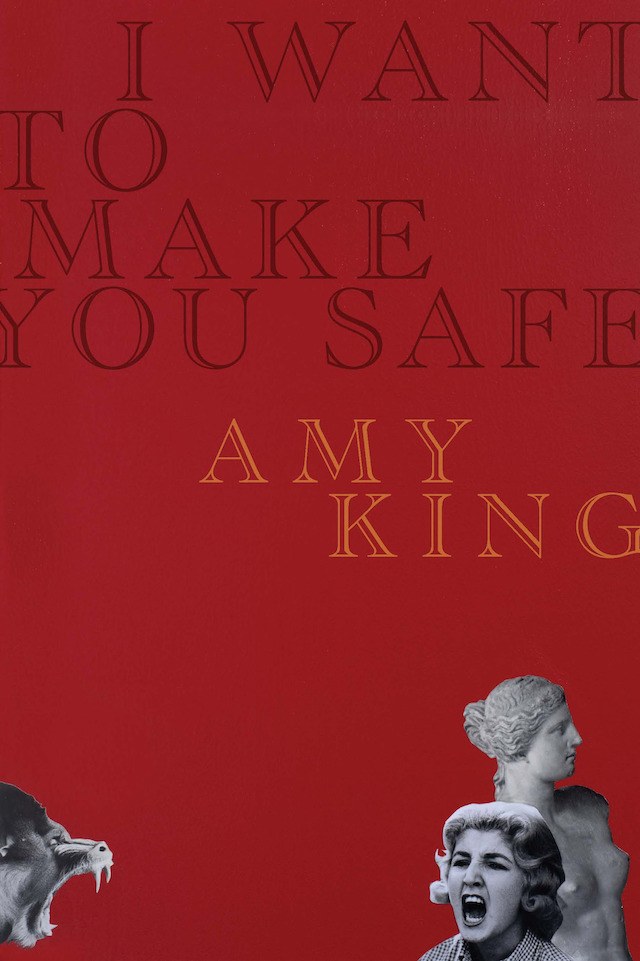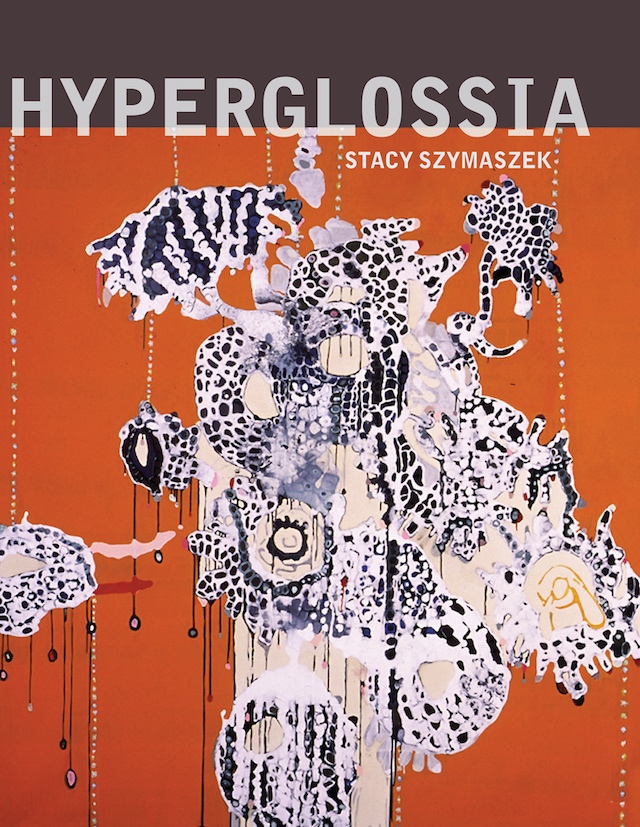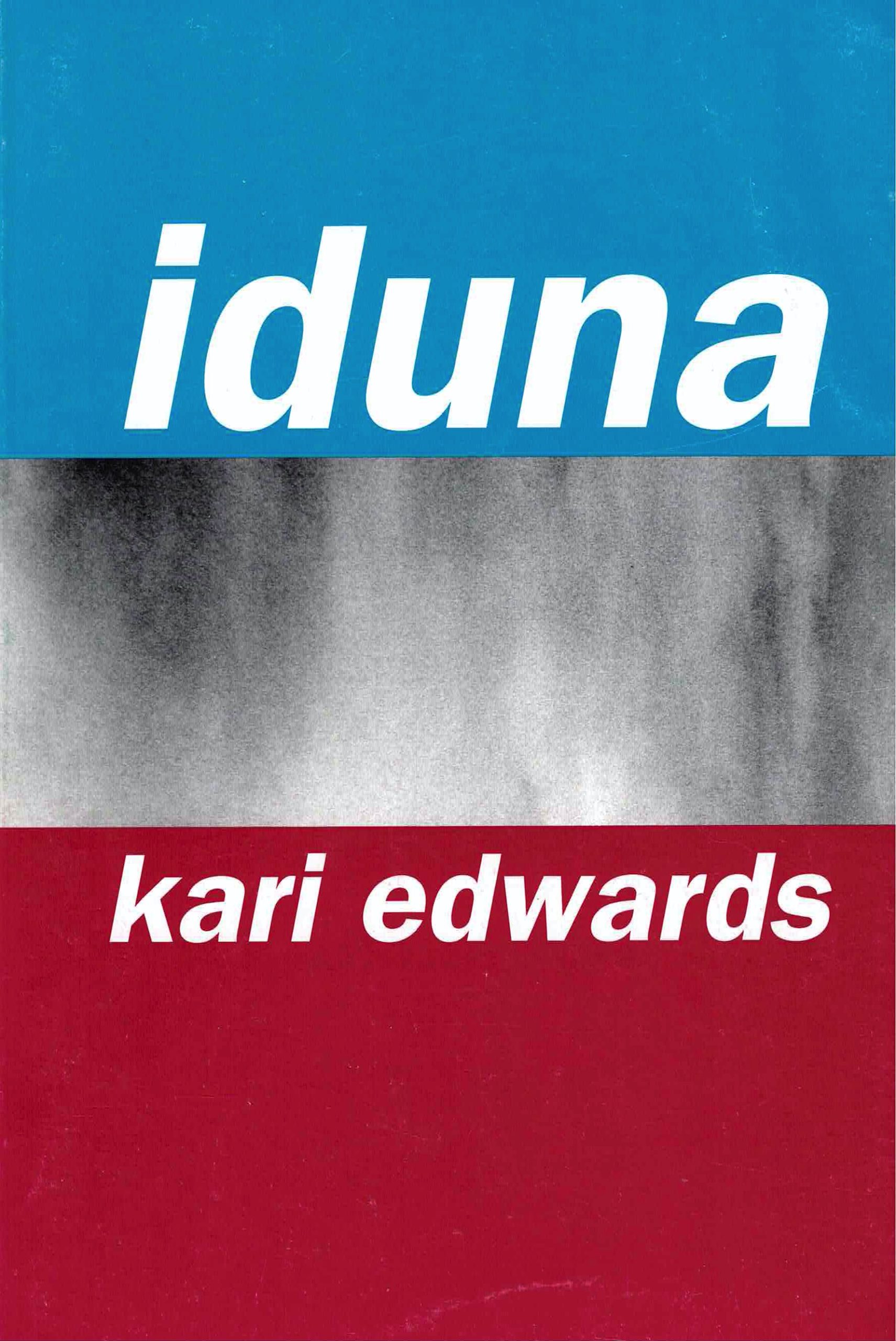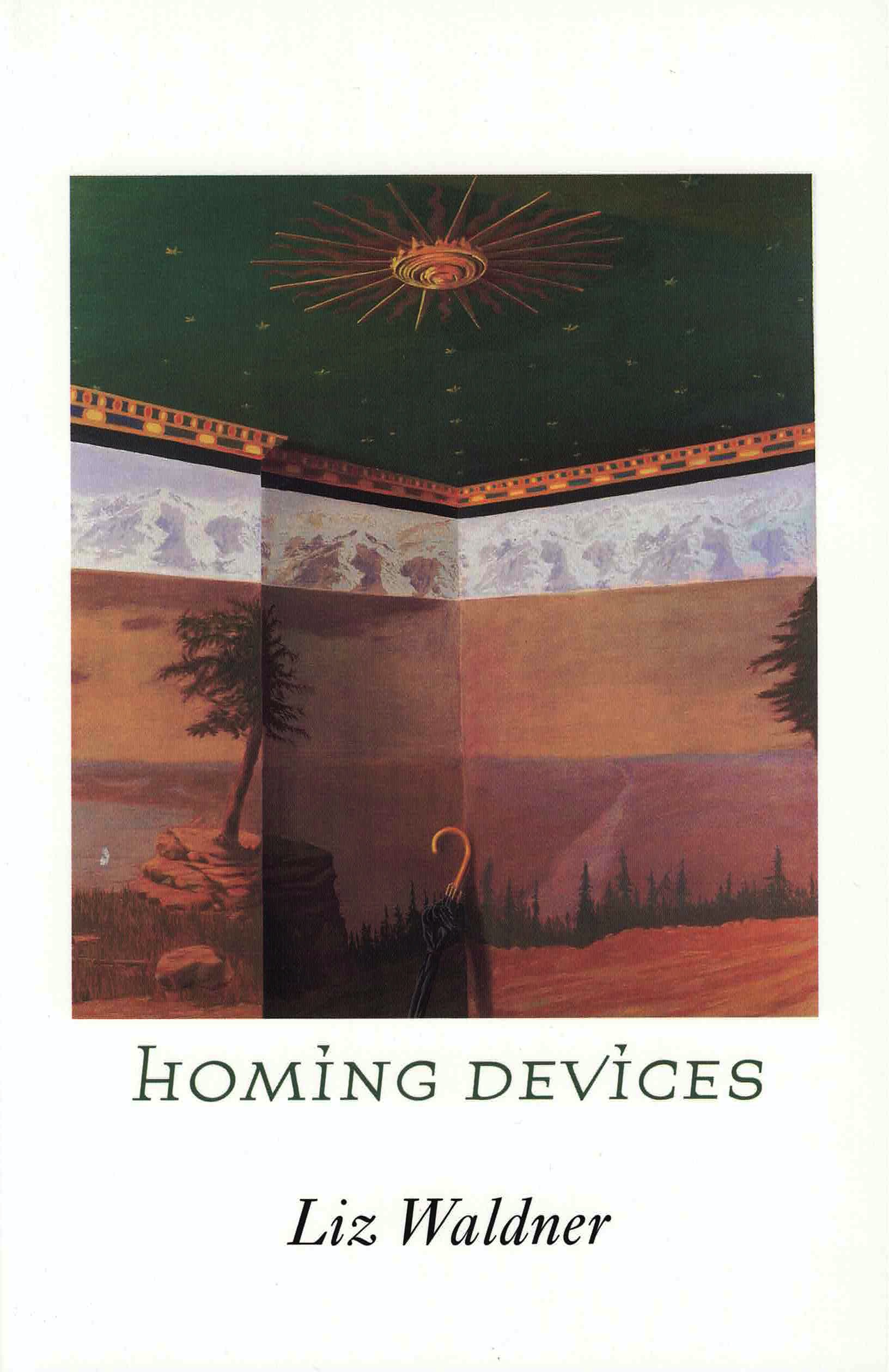I Want to Make You Safe sings of a world of things and beings all equally revered with the same robust irreverence: “Even these lines forget/straight lines/stars that wear pearls/drinking with swine.” Beginning with a mock biography and ars poetica, and ending in an opera where continents and hatchling wrens alike chant grand arias, these poems cherish the practice of collapsing and complicating accepted categories, defiantly resisting the safety that might be promised by their simplification. In I Want to Make You Safe, King’s strong sounds, rhythms and rhymes allow her to hold ephemera and bric-a-brac—the building blocks of this text—in a charged but always mobile, and kinetic, tension: as alive and replete with potential for metamorphosis as the world with which they keep faith: “Everything that happens now/is preceded by another now/until they pile/on top of what we hold in lairs/that hide how falsely we perceive the world to be.”
Amy King
Praise for I Want to Make You Safe
Amy King’s poems seem to encompass all that we think of as the “natural” world, i.e., sex, sun, love, rotting, hatching, dreaming, especially in the wonderful long poem “This Opera of Peace.” She brings these abstractions to brilliant, jagged life, emerging into rather than out of the busyness of living: “Let the walls bear up the angle of the floor, / Let the mice be tragic for all that is caged, / Let time’s contagion mar us / until spoken people lie as particles of wind.”
— John Ashbery
“Rarely have the nude and the cooked been so neatly joined” as in Amy King’s I Want to Make You Safe. If “us,” “herons,” and “dust” rhyme, then these poems rhyme. If that makes you feel safe, it shouldn’t. Amy King’s poems are exuberant, strange, and a bit grotesque. They’re spring-loaded and ready for trouble. Categories collapse. These are the new “thunderstorms with Barbie roots.”
— Rae Armantrout
Vulnerability, fragility, and anxiety are all flushed out into the open here and addressed with such strong sound and rhythm that we recognize a resilient, defiant strength within them. King puts relentless pressure on forces seemingly beyond our reach and, in bringing them closer, exposes their own vulnerable centers. This is a poetry equally committed to language as a tool with social obligations and language as an art material obligated to reveal its own beauty. King’s language does both magnificently.
— Cole Swensen
I love Amy King’s smile in photos of Amy King, Amy King’s exuberance and looping, bashing panache (flamboyant manner, reckless courage) in the poems of Amy King, I’m going to say Amy King every chance I get in this blurb to make you think “I gotta read me some Amy King,” especially if you’re “looking for anything/that will pull the cork, boil the blood/of displeasure,” as only the poems of Amy King can in the world in which Amy King is King (and Queen).
— Bob Hicok
The first poem I read by Amy King was “Men By The Lips of Women” and it struck me with a force I had previously felt on encountering masterworks by Lorca and Dylan Thomas. I won’t live long enough to see if her poetry will continue to equal the magnificence of theirs, but the fact that she achieved it once (at least) proves to me it could.
— Bill Knott





Amy King’s fourth book, I Want to Make You Safe, is a naked threat of love, brazen and humble, epic and satisfyingly sour, offering a kind of relentless attention and need that combine in the senses held and dispersed by her language. King’s book builds into an unfurling portrait of a dead-eyed tenderheart, hoisting up her world with a body-shaped ear to pull the insides out and the outsides in.
— Sara Jane Stoner, The Poetry Project Newsletter
Amy King’s fourth collection of poems manifests something of Allen Ginsberg’s orphic lament and intimate yearning—personal appeals and political plaints fold together in rattling neologisms.
— Tim Wood, Boston Review
I Want to Make You Safe is filled with quick slippages between I & you & they & we. It stays deeply embedded in the world of things—natural and otherwise—while displaying a relentless imagination.
— Alan Gilbert, The Poetry Foundation
The poems ride a current of energy and association, surrealistic imagery and disorder, and King presides over this rush and insistence of language with authority and intelligence, yet manages to evoke a stillness that gives away her insightful and passionate search for meaning and connection in the confusion that is life.
— Michelle Gillett, The Rumpus